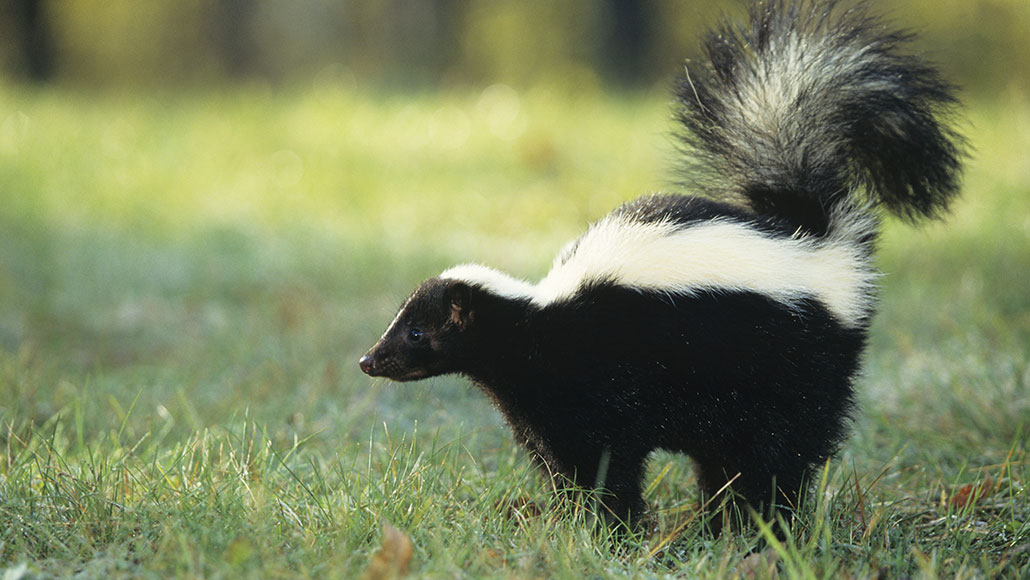
MAKING A STINK Skunk spray contains a cocktail of foul-smelling chemicals, but a particular type of fungus makes a compound that can take the stink away.
Tom Brakefield/iStock/Getty Images Plus

MAKING A STINK Skunk spray contains a cocktail of foul-smelling chemicals, but a particular type of fungus makes a compound that can take the stink away.
Tom Brakefield/iStock/Getty Images Plus